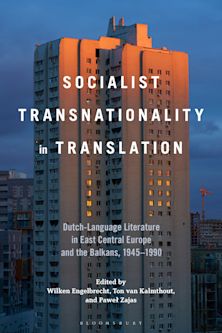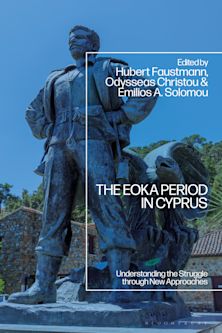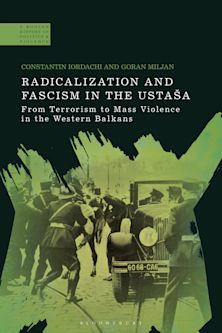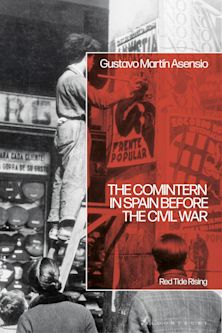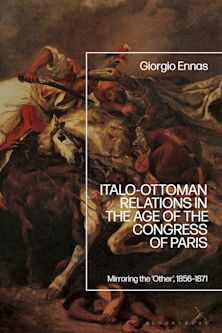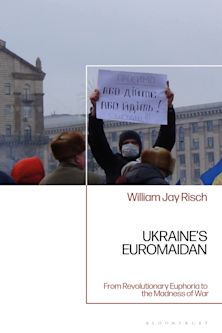- Home
- ACADEMIC
- History
- European History
- Unmaking Détente
Unmaking Détente
Yugoslavia, the United States, and the Global Cold War, 1968–1980
Unmaking Détente
Yugoslavia, the United States, and the Global Cold War, 1968–1980
You must sign in to add this item to your wishlist. Please sign in or create an account
Description
This book examines the global history of the Cold War in the 1970s through the perspective of Yugoslavia's activism in the Global South and its relations with the superpowers. The author shows that Yugoslavia’s anxiety over a “new Yalta” required a disruptive role toward détente, which it saw as the superpowers’ attempt to divide the spheres of influence. Yugoslavia’s global activism in the 1970s reflected not only its desire to undermine alleged superpowers’ agreements but also its desire to promote the Yugoslav revolutionary model as a distinctive form of political, social, and economic organization. The author traces the complex interactions between Yugoslavia and the world but also investigates the limitations of Yugoslavia's global activism. Drawing on a novel and wide source base from the archives in the former Yugoslavia, the United States, and Great Britain, the book shows the web of opportunities, problems, and challenges that détente and the Cold War in the 1970s offered to and imposed on a small state in the Balkans.
Table of Contents
Chapter 1: Introduction
Chapter 2: “The Elusive Summer of '68”
Chapter 3: “We want them to talk, but…,” 1969–1972
Part II: Years of Confrontation, 1973–1976
Chapter 4: Against a “New Yalta,” 1973–1974
Chapter 5: An untenable truce, 1975–1976
Part III: Years of Uncertainty, 1977–1980
Chapter 6: Diplomacy on steroids, 1977–1978
Chapter 7: The death of Tito's diplomacy, 1978–1980
Conclusion
Bibliography
Product details
| Published | Jun 29 2022 |
|---|---|
| Format | Ebook (PDF) |
| Edition | 1st |
| Extent | 304 |
| ISBN | 9781978787124 |
| Imprint | Lexington Books |
| Publisher | Bloomsbury Publishing |
About the contributors
Reviews
-
Socialist Yugoslavia consistently punched above its weight and played a crucial role in Cold War diplomacy. Drawing on a very wide collection of archival documents, Milorad Lazic provides a fascinating survey of Yugoslavia’s diplomatic policies and initiatives and how these by turns beguiled, challenged and frustrated the Soviet Union, the United States and Yugoslavia’s fellow members in the Non-Aligned Movement. The book both informs and entertains with new perspectives on international relations during the Cold War.
Christian Axboe Nielsen, Aarhus UniversityChristian Axboe Nielsen, Aarhus University
-
Harnessing exhaustive archival research, Milorad Lazic provides a vivid, incisive account of Yugoslav diplomacy during Josip Broz Tito’s final years. Unmaking Détente offers a rich window into the challenges and opportunities confronting a small, yet influential state during the 1970s, as Yugoslavia sought security in Europe and influence abroad. His account compellingly conveys the elderly Tito’s ambitions and anxieties, while providing a unique window into the changing politics of nonalignment in the late Cold War. Unmaking Détente is essential reading for anyone interested in the Third World project, Yugoslav foreign policy, or the challenges of middle power diplomacy.
Robert Rakove, author of Kennedy, Johnson, and the Nonaligned World (Stanford UniversityRobert Rakove, Stanford University
-
Based on outstanding research in formerly Yugoslav, British, and American archives, Milorad Lazic demonstrates how Tito’s Yugoslavia was pivotal in disrupting Soviet-American détente in the 1970s. Fearful of domestic fragmentation and international decline, Tito worked had to re-establish Yugoslavia’s independent role in international relations in the wake of the Soviet intervention in Czechoslovakia and the American engagement in Vietnam. In the process, he undermined superpower cooperation by skillfully maneuvering through a myriad of crises—the October War, the Cyprus Crisis, the CSCE process, the radicalization of the Non-Aligned Movement, the Angola War, Sino-American rapprochement, the Third Indochina Conflict, and the Afghanistan War. Lazic’s fascinating and important book restores a central but often neglected aspect to our understanding of the Cold War—the immense role of smaller actors in shaping, but also undercutting great power relations.
Lorenz Lüthi, author of Cold Wars: Asia, the Middle East, Europe (McGill University)Lorenz Lüthi, McGill University
-
Unmaking Détente is a valuable contribution to the existing secondary literature on the period, and it constitutes an enjoyable reading for any scholar of international history. Moreover, its chronological structure and clarity will make it a useful resource for courses and research seminars dealing with the history of non-alignment. Milorad Lazic has produced an excellent account of Yugoslav foreign policy in
the 1970s, one which provides valuable insights and will be of great interest to scholars of the Cold War in Yugoslavia and beyond.Hungarian Historical Review

ONLINE RESOURCES
Bloomsbury Collections
This book is available on Bloomsbury Collections where your library has access.












